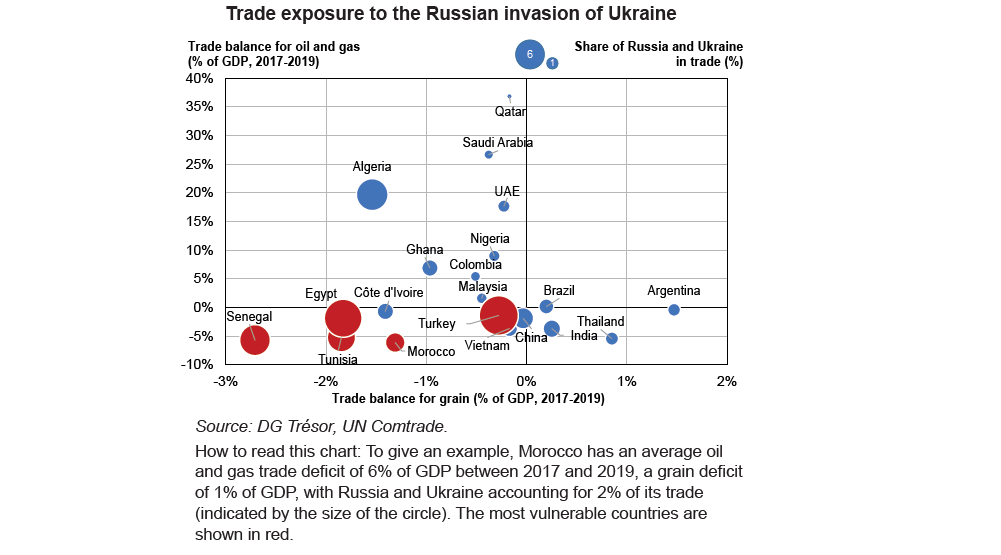Impacts of the Russian Invasion of Ukraine on Emerging Economies
The effects of the invasion of Ukraine will be asymmetric for emerging economies. While hydrocarbon exporters benefit from higher prices, African and Middle Eastern countries will be particularly affected by their trade exposure to Russia and Ukraine and their dependence on food imports. These countries are fragile and have little fiscal space to contain inflationary pressures, which exacerbate the risk of social tensions.
While the majority of emerging economies saw their business activity return to pre-COVID levels in 2021, Russia’s offensive on Ukraine launched in late February will impede the path to recovery. North African and Middle Eastern economies (with the exception of Algeria) are expected to be hit particularly hard by the Russian invasion. As major business partners of Ukraine and Russia, these countries are beginning to face supply disruptions, particularly for foodstuffs, and a boom in commodity prices. On the other hand, commodity exporters, particularly of oil and gas (Gulf countries, Algeria, Colombia), agricultural products (Argentina, Brazil) and metals (Chile, South Africa) are expected to reap the benefits of price spikes.
The higher commodity prices will heavily impact emerging and developing economies given the share of foodstuffs and energy in their households’ shopping basket. They also exacerbate inflationary pressures present across many Latin American and African countries since the second half of 2020, which could in turn create social and political tensions much like those in 2007-2008 and 2010-2011.
In tackling inflation, emerging countries primarily turn to fiscal policy to bolster consumption and to market interventions (price control, export restrictions etc.). However, authorities have varying room for manoeuvre. While emerging Asian economies and the major commodity exporters are able to ensure long-term support, the weak fiscal position of sub-Saharan countries and those in the Mediterranean basin means that a long-term implementation of these measures would be difficult. To address the growing food crisis risks in the most vulnerable countries, France launched the FARM (Food and Agriculture Resilience Mission) initiative.
